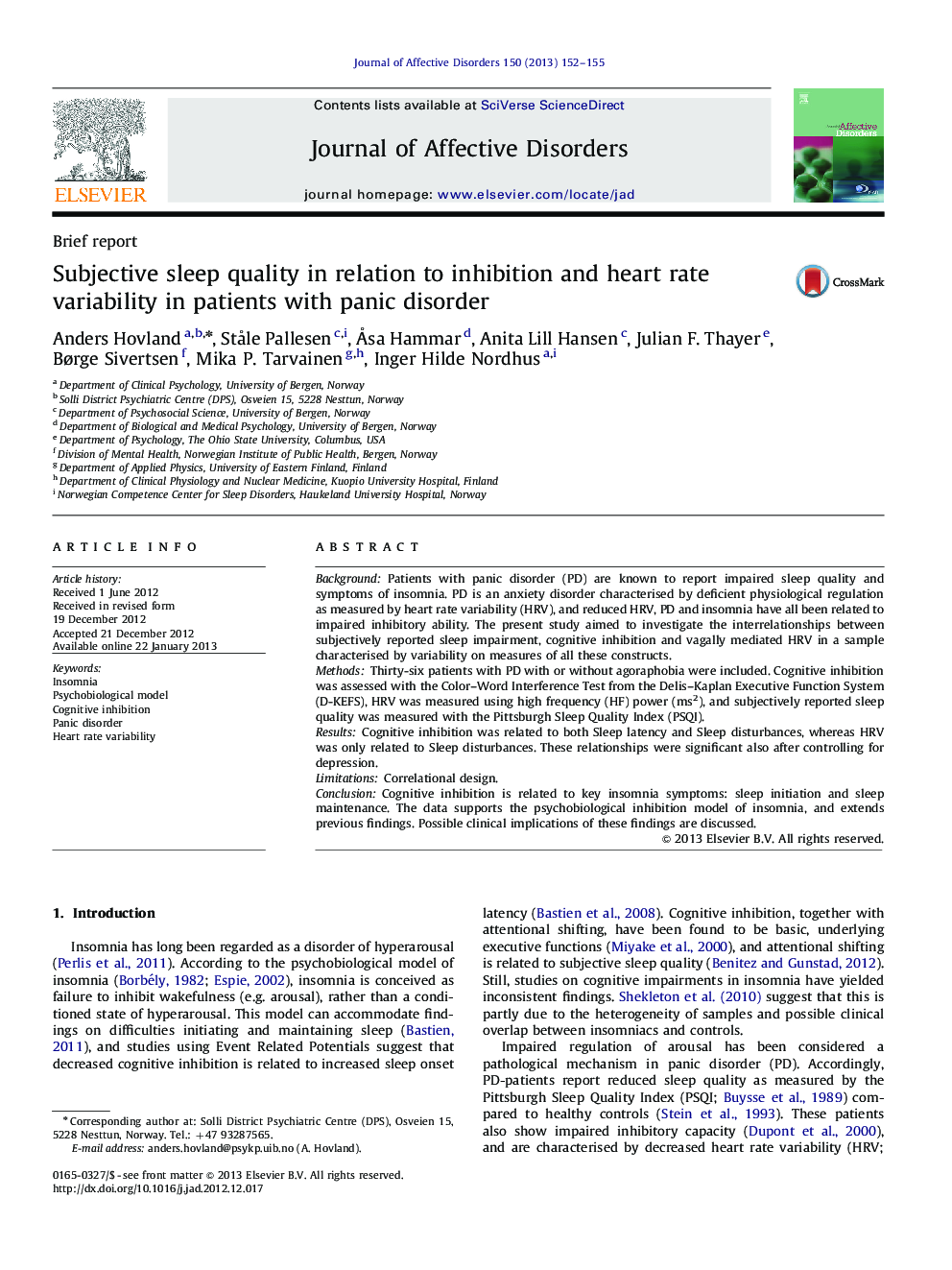| Article ID | Journal | Published Year | Pages | File Type |
|---|---|---|---|---|
| 6234181 | Journal of Affective Disorders | 2013 | 4 Pages |
BackgroundPatients with panic disorder (PD) are known to report impaired sleep quality and symptoms of insomnia. PD is an anxiety disorder characterised by deficient physiological regulation as measured by heart rate variability (HRV), and reduced HRV, PD and insomnia have all been related to impaired inhibitory ability. The present study aimed to investigate the interrelationships between subjectively reported sleep impairment, cognitive inhibition and vagally mediated HRV in a sample characterised by variability on measures of all these constructs.MethodsThirty-six patients with PD with or without agoraphobia were included. Cognitive inhibition was assessed with the Color-Word Interference Test from the Delis-Kaplan Executive Function System (D-KEFS), HRV was measured using high frequency (HF) power (ms2), and subjectively reported sleep quality was measured with the Pittsburgh Sleep Quality Index (PSQI).ResultsCognitive inhibition was related to both Sleep latency and Sleep disturbances, whereas HRV was only related to Sleep disturbances. These relationships were significant also after controlling for depression.LimitationsCorrelational design.ConclusionCognitive inhibition is related to key insomnia symptoms: sleep initiation and sleep maintenance. The data supports the psychobiological inhibition model of insomnia, and extends previous findings. Possible clinical implications of these findings are discussed.
